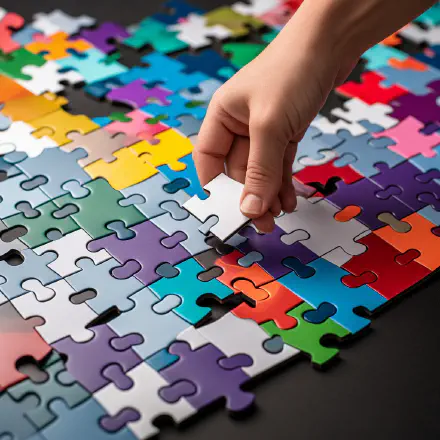
The Importance of Self-Regulation
In today’s digital age, self-regulation skills have become more critical than ever. Self-regulation refers to the ability to manage our thoughts, emotions, and behaviors in a conscious and deliberate manner. Research has shown that individuals who possess strong self-regulation skills tend to perform better in their personal and professional lives.
Studies have found that people who practice self-regulation techniques are more likely to achieve their goals, have better academic performance, and experience higher levels of well-being. Furthermore, individuals with strong self-regulation skills tend to be more productive and efficient in their work.
In contrast, individuals who lack self-regulation skills are more likely to procrastinate, get distracted easily, and struggle to complete tasks. They may also find it challenging to manage stress and regulate their emotions, which can lead to burnout.
Therefore, mastering self-regulation skills is essential for achieving success in life and work. By learning how to manage distractions, set realistic goals, and regulate our emotions, we can become more productive, efficient, and satisfied with our lives.
Self-Regulation Techniques for Staying Focused
Here are some effective self-regulation techniques to help you stay productive and focused in the digital age:
Minimize Distractions
Distractions are one of the biggest productivity killers, especially in the digital age. To minimize distractions, consider turning off notifications on your phone and desktop, using noise-canceling headphones, and setting up a dedicated workspace to minimize distraction.
“Distractions can be insidious, pulling your attention away from the task at hand. By minimizing distractions, you can free up your attentional resources to stay focused on your work and be more productive.”
Use Time-Tracking Tools
Time-tracking tools can be helpful for monitoring how long you’re spending on tasks and help you identify areas where you might be wasting time. There are several time management and productivity apps available, including Trello, RescueTime, and Forest.
“By using time-tracking tools, you can gain insights into how you’re spending your time and make adjustments to improve your productivity and efficiency.”
Practice Mindfulness
Mindfulness is a powerful practice that can help you stay focused and present in the moment. Consider practicing mindfulness techniques like meditation, breathing exercises, and body scans to help you stay present and focused.
“Mindfulness can be a useful tool to help you stay focused and avoid getting caught up in distraction and mind-wandering, ultimately helping you be more productive.”
Take Breaks
Taking breaks is essential for staying focused and productive, as it helps you recharge and avoid burnout. Consider taking regular breaks throughout the day, such as Pomodoro-style breaks where you work for a set amount of time and then take a short break.
“By taking breaks, you allow yourself time to rest, recharge, and refocus, which can ultimately help you stay productive and motivated throughout the day.”
Tips for Sticking to Your Self-Regulation Plan
Once you have developed a self-regulation plan, it can be challenging to stick to it over the long term. Here are some tips to help you remain consistent and stay on track with your self-regulation goals:
Set Realistic Goals
One of the most important aspects of sticking to your self-regulation plan is setting realistic goals. If your goals are too challenging or unrealistic, you may become demotivated and abandon your plan altogether. When setting your goals, be sure to consider your current level of focus and productivity and set milestones that will challenge you but are still achievable.
Create a Schedule
Creating a schedule can help you stay focused and on track with your self-regulation plan. When you have a clear schedule in place, you’re less likely to get sidetracked by distractions. Time-blocking is also a powerful technique to help you prioritize your tasks and make the most of your time. You can use apps like Trello, Asana, or Notion to create a schedule and track your progress.
Celebrate Your Success
When you reach a milestone or achieve a goal, be sure to celebrate your success. Celebrating your accomplishments is an excellent way to reinforce positive behaviors and motivation. It can also help you stay committed to your self-regulation plan over the long term. Reward yourself for a job well done, like watching a movie, treating yourself to your favorite food, or simply taking a break.
Seek Support
Having a support system can help you stay accountable and motivated while working on your self-regulation plan. You can join a support group, enlist the help of a mentor, or even work with a coach or therapist. A supportive community can offer encouragement, feedback, and accountability to help you stay focused and on track with your goals.
Practice Self-Compassion
Self-regulation can be challenging, and setbacks are bound to happen. When you experience setbacks or make mistakes, it’s essential to practice self-compassion and avoid negative self-talk. Cultivating self-compassion can help you bounce back from setbacks and maintain a long-term commitment to your self-regulation plan. Remember that self-improvement is a journey, not a destination, and be kind to yourself along the way.
Conclusion
In today’s digital age, self-regulation has become more critical than ever before. The ability to stay focused and be productive amidst constant distractions can make a significant difference in one’s professional and personal life. By employing techniques such as minimizing distractions, using time-tracking tools, practicing mindfulness, and taking breaks, individuals can take control of their work and improve performance.
To succeed with self-regulation, it’s crucial to set realistic goals, create a schedule, and celebrate your successes. Setting realistic goals and scheduling work helps individuals stay organized and avoid burnout, while celebrating success motivates them to continue making progress.
Ultimately, mastering self-regulation requires both discipline and willingness to experiment with different techniques. With persistence, individuals can create a self-regulation plan tailored to their unique needs, reaping the benefits of improved productivity, focus, and life satisfaction. Let’s take action to create better habits for ourselves today.

